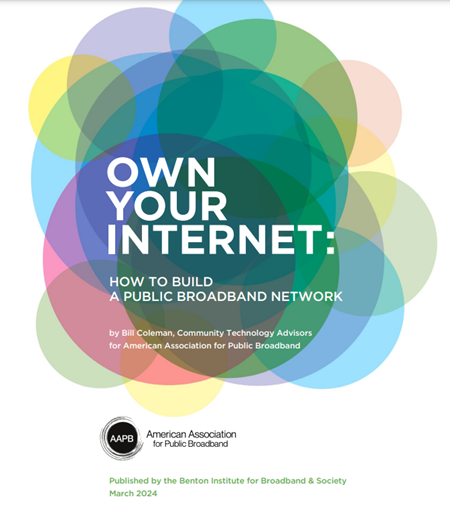AAPB and Benton Publish New Handbook: ‘How To Build A Public Broadband Network’
More cities and towns across the U.S. are exploring municipal broadband as an increasingly attractive and effective approach to bring ubiquitous, and affordable, high-speed Internet to its residents and businesses.
Now, a new handbook has been published that is tailored to guide local officials in navigating the logistical, technical, financial, and political challenges along the way.
Hot off the presses this week comes “Own Your Internet: How To Build A Public Broadband Network” – a project of the American Association for Public Broadband (AAPB), published in partnership with the Benton Institute for Broadband & Society.

“This handbook is a key part of AAPB's strategy to double the number of public networks in the next five years, supporting communities in leveraging these networks for economic development, smart city initiatives, and attracting new residents," AAPB Executive Director Gigi Sohn said in announcing the handbook release.
Benton Executive Director Adrianne B. Furniss said the collaboration in publishing the guide made sense because “every community has a stake in this broadband moment—and they must have the tools they need to decide how they will meet their connectivity needs. We trust that this handbook is one of many tools communities will use to assess their situation and plan for a connected future.”




